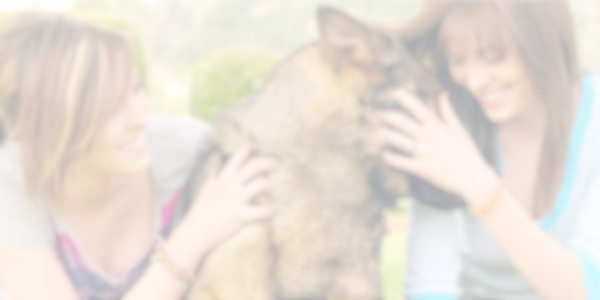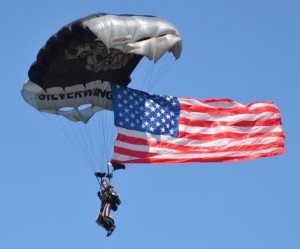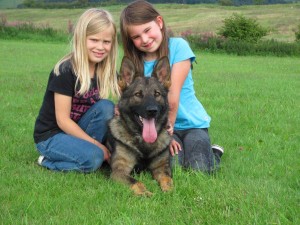Fourth of July Safety
With Independence Day rapidly approaching, dog owners should take precautions to ensure the safety and comfort of their dogs during Fourth of July celebrations. Unfortunately, many pet dogs show sensitivity to fireworks, with reactions ranging from mild anxiety to all-out panic attacks. Sound dogs that do not show sensitivity to such loud noises may still be excited or agitated by all the celebration, so it is equally important to consider their safety and security as well. If you have a dog that is bothered by fireworks, there are a few simple steps you can take to keep them safe and somewhat calm during Fourth of July celebrations.
First, do not leave your dog alone and unattended in the backyard during fireworks displays, even if the show is a considerable distance away. Dogs have much more acute hearing than we do, and the booming and thumping of the fireworks can still agitate them. A dog that works itself into a panic or frenzied state of excitement over the noise can escape the backyard and take off, getting itself lost while in this over-stimulated state. Or, the dog may hurt itself by trying to escape the backyard, requiring an emergency trip to the vet.
Second, do not take a dog or a young puppy to go see the fireworks display up close, even in an attempt to “socialize” the dog or “conquer” its fear. This can be a terrifying and traumatic experience for many dogs–particularly young animals–and can serve to reinforce a fear of loud noises and explosions in the dog. Additionally, a terrified or overstimulated dog may be more inclined to bite indiscriminately during their state of panic or excitement.
Third, if your dog has shown sensitivity to thunder and fireworks in the past, do not leave him home alone and unattended. Even crating a dog can be detrimental to a dog with noise sensitivity. Many dogs with panic reactions to fireworks can severely harm themselves in an attempt to escape from their crates, destroying not only the crate but their teeth, nails, and legs in the process. Someone needs to stay home with the dog to help keep him calm. If you do not know whether your dog will react, then it is better to have someone home watching him than to come home to a house that has been torn apart by a panicked animal.
Fourth, consider using natural calming aids prior to the fireworks to help keep your pet calm. Dogs with very severe reactions may need to be sedated with a veterinarian-prescribed drug like Acepromazine (“Ace”), although caution must be exercised when using such tranquilizing drugs. For less severe reactions, consider using an alternative like Homeopet’s Anxiety TFLN (Thunderstorms, Fireworks, Loud Noises), which is a combination of homeopathic remedies that specifically address phobias and anxieties related to loud noises, but with few side effects. Other calming aids include Dog Appeasing Pheromones (DAP), Rescue Remedy, and calming herbs like chamomile; however, always use caution before mixing multiple natural remedies, and read the labels carefully for any known contraindications. Most medications or natural remedies need to be administered 30-60 minutes prior to the fireworks and loud noises.
Lastly, be very conscious of your own behavior toward your pet. You want to maintain a calm, relaxed attitude, but you also should avoid coddling a fearful pet in an attempt to comfort it. This can actually reinforce their fearful behavior. Your dog looks to you for leadership, and if you seem anxious or worried, then they will be anxious and worried. Remain calm, and keep up the normal routines of your house: eating dinner, watching TV, playing some nice music, reading, etc., all while keeping a watchful yet calm eye on your dog. You may even try distracting your dog just prior to the fireworks show by giving him a nice big raw bone or bully stick to chew on (with supervision); this will keep him occupied while providing an outlet for any anxiety.
May you and your pet have a happy and safe Fourth of July!



